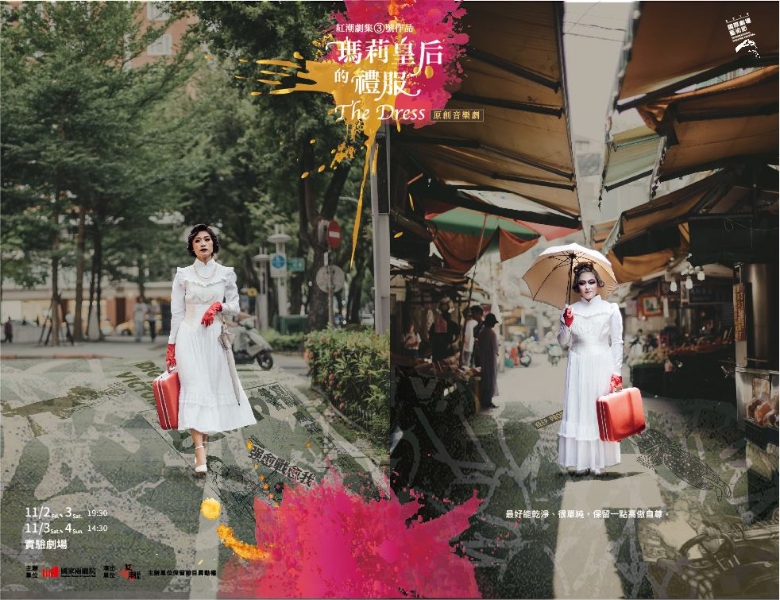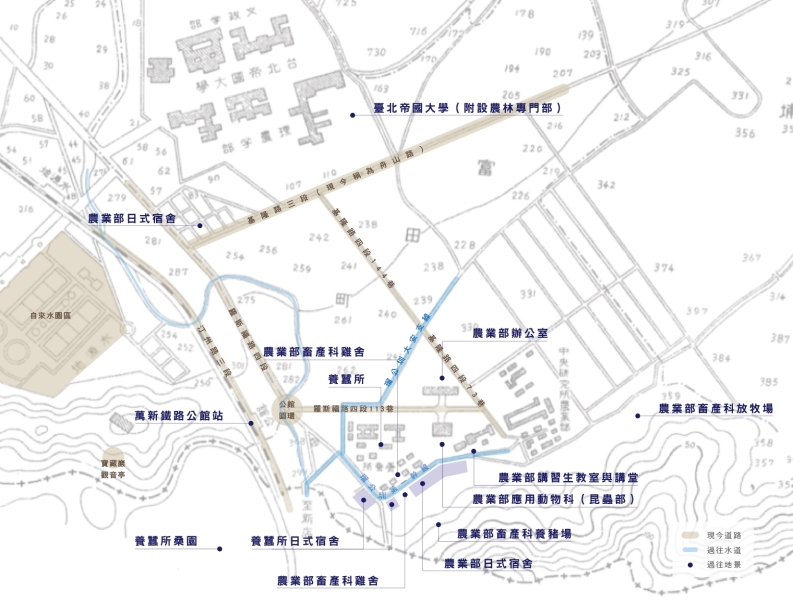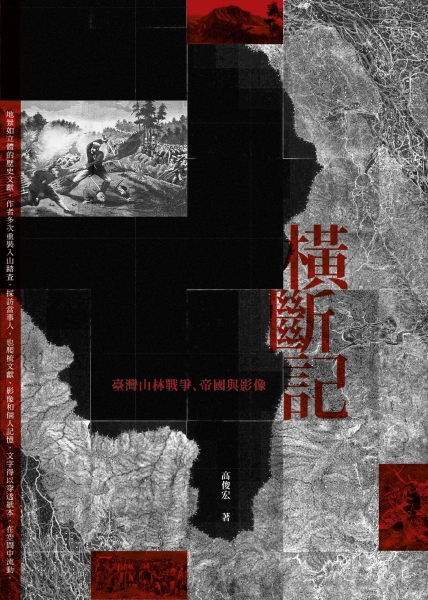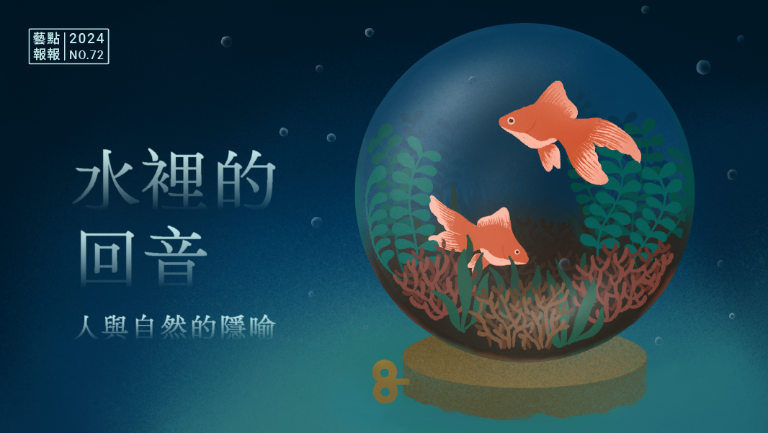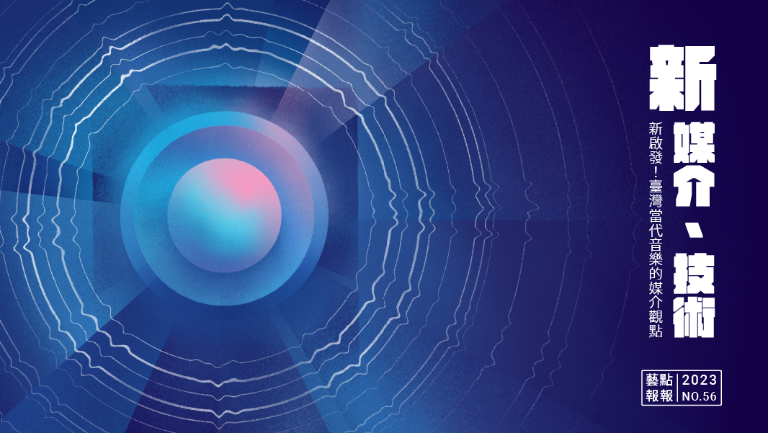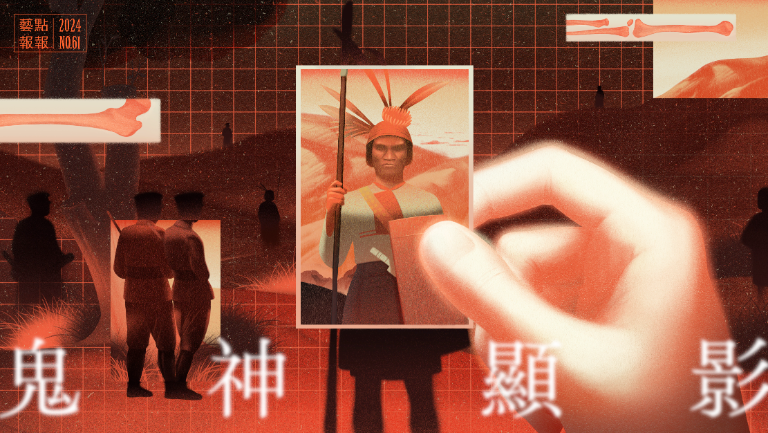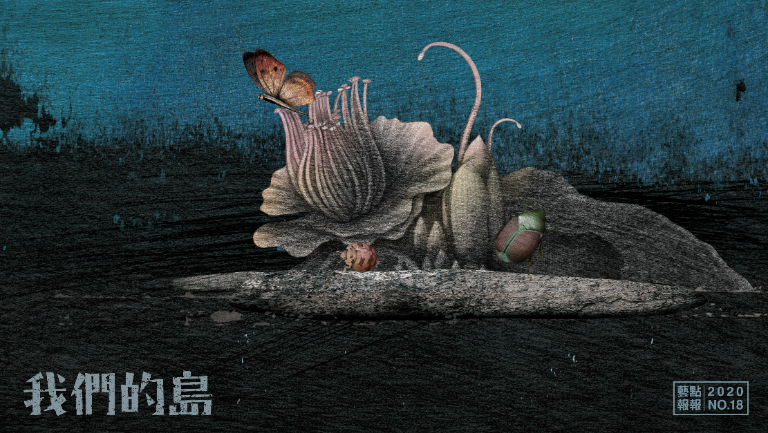“I know not with what weapons World War III will be fought, but World War IV will be fought with sticks and stones.” —— Albert Einstein
Everyone agrees that there are no winners in war. One would think that since every nation in the world has been through war and all of its losses, peace should be the universal consensus. Yet in this very moment, there are still armed conflicts of varying scales ongoing in various countries. The Silent Generation lived through destruction of cities. What excruciating pain the bodies and minds of countless families had to undergo due to terror and anti-humanitarian persecution and invasion. "Rack and ruin" was not just an idiom for them, but their day-to-day, the feeling of suffocation they had to endure for a lifetime.
Most of the people who experienced World War II are now in the dusk of their life. How can their progeny—in the prime of their life—feel and understand the hardship of those grim times? Ting-Chi Wang, a native of battle-scarred Kinmen Island, visited former battlefields across Europe in Frontiers, Conflicts, Memories, Reenactment—Art and Cultural Movements During International Conflicts, in an attempt to discover the sustained influence military conflict still has in the world and society, as well as its grim warning, through personal on-site investigation. Maggie Liao's The Cosmic Artist is a documentary that serves to shed light on Yuan-Chia Li, the "first Chinese conceptual artist" that left his homeland to escape from war and settled abroad to avoid persecution. His life of solitude and determination was dedicated to self-expression and to combat inequality due to modern forms of feudalism, racism, and classism.
What is war like? Only war survivors know, but most will seal their lips about it. The first reason that comes to mind is the gloom that recalling such memories entails, but there's also the fear of sinking back into regret, guilt, or the vicious nightmare of "everything would've been different if I'd made other choices". Oral History Interviews to Taiwanese Soldiers systematically organized and studied historical data from Taiwanese veterans. Racing against time, several near-centenarians were interviewed to allow more people to better understand and care about the human rights situation of war survivors from the perspective of Taiwan's contemporary war history and victims. Oral History Project of U.S. Western Enterprises Inc. Intelligence Agents Stationed in the Matsu Islands During the Korean War interviewed Dr. Michal Korinek, a U.S. national, who happened to act as an intelligence agent in Taiwan during his military service amidst the Korean War. He carried out intelligence operations during the Cold War, serving as a witness of historical changes who, despite coming from abroad, experienced the process alongside inhabitants of the island nation.
It is difficult to put into words battlefield casualties and the number of lives lost to military conflict, yet it is important to notice the gender ratio amidst all these and the disparities generally caused by biological differences under these extreme circumstances. On the occasion of the 70th anniversary of the end of World War II, Shu-Yuan Kao participated in the exhibition Intimate Transgressions organized by New York's White Box Art Center with photography and video artworks based on the traumas and scars left by war on survivors and comfort women. A total of 15 women artists were part of the exhibition to remind the world of this dark chapter in history, by now nearly forgotten. The exhibition reflected on armed conflicts and demanded accountability from anti-humanitarian acts committed in relation to such. Using the gender lens, another facet of the human experience of war is revealed and contemporaries are called on to consider whether such bloodshed, which achievements are so limited, are really imperative or even necessary. After reading Yokohama Mary, the story of a legendary prostitute told in the documentary by director Takayuki Nakamura, Inred Liang realized that many women share similar stories to the documentary's central character, Hachiko, during wartime. For instance, the insincere words received by the first Taiwanese comfort women who demanded an apology from Japan changed their lives forever. This idea led the artist to start a script writing project and create The Dress of Queen Mary, allowing the audience to closely follow the main character's life to inspire reflection by broadening their horizons.
Perhaps time is the only phenomenon in life not fraught with dualism. Whether it's the events currently happening in the land we call home or the power struggles with lethal potential across the world, war does not only consist of chapters in history books or stretches of consciousness—entangled therein are also lives sacrificed for no valid reason and chaotic, absolute violence. "Progress" is non-stop in the world, but so is armed conflict. Perhaps this is the time to sit down and think, what is the legacy of war?
From one point in time to the other, ripples in the water will not disappear as long as wounds remain open and gunfire is still raging.
*Translator: Linguitronics



